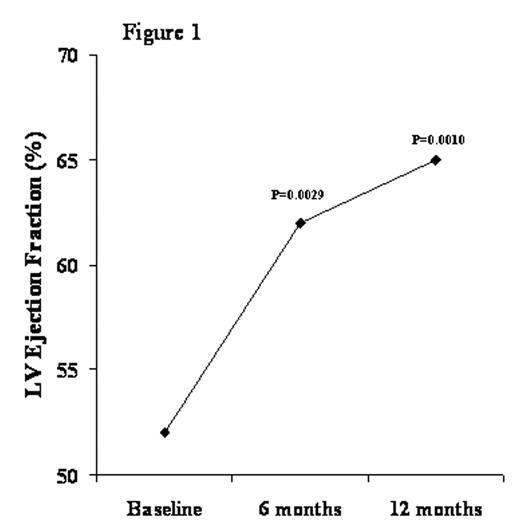Abstract
Introduction: Thalassaemia major ™ is an inherited haemoglobinopathy resulting from mutations of the β-globin gene. Survival is dependent upon lifelong blood transfusions and results in progressive total body iron overload. Cardiac failure secondary to myocardial iron loading is by far the commonest cause of death with only 50% of patients in the UK in recent cohorts surviving beyond the age of 35 years. Conventional treatment with the parenteral iron chelator deferoxamine improves morbidity and mortality but fails to clear the heart of iron in approximately two-thirds of patients. More recently, the oral iron chelator deferiprone has been demonstrated to remove myocardial iron and it has been proposed that in combination with deferoxamine it may have an additive effect. Through the T2* multi-echo cardiac magnetic resonance (CMR) technique, myocardial iron can now be non-invasively and reproducibly quantified, thereby providing a means to assess myocardial iron loading in response to chelation treatment.
Purpose: To report the changes in myocardial T2* and cardiac function in patients with severe myocardial iron loading (myocardial T2* <8ms) following treatment with the un-blinded addition of deferiprone to continued deferoxamine chelation therapy.
Methods: A mobile CMR scanner (1.5T Siemens Sonata) was transported to Cagliari, Italy. The myocardial T2* was assessed in 167 patients with TM aged 18v42 (30 +/− 5.3years). Of these, 22 patients were identified as having severe myocardial iron loading (T2* <8ms), 15 of whom (at their clinician’s discretion) were subsequently given deferiprone in addition to continued deferoxamine therapy. Patients underwent further CMR assessment at baseline, 6 and 12 months.
Results: Over a period of 12 months myocardial T2* improved significantly (6.1+/− 1.0ms to 8.2ms +/−2.5ms, p=0.007) in association with an improvement in cardiac function (LV ejection fraction 52 +/−12% to 65% +/−6.6%, p<0.0001). See Figures 1 and 2.
Conclusion: This prospective study shows that patients with severe myocardial iron loading show significant improvement in iron loading and myocardial function with the addition of deferiprone to continued parenteral deferoxamine.
Author notes
Corresponding author



This feature is available to Subscribers Only
Sign In or Create an Account Close Modal